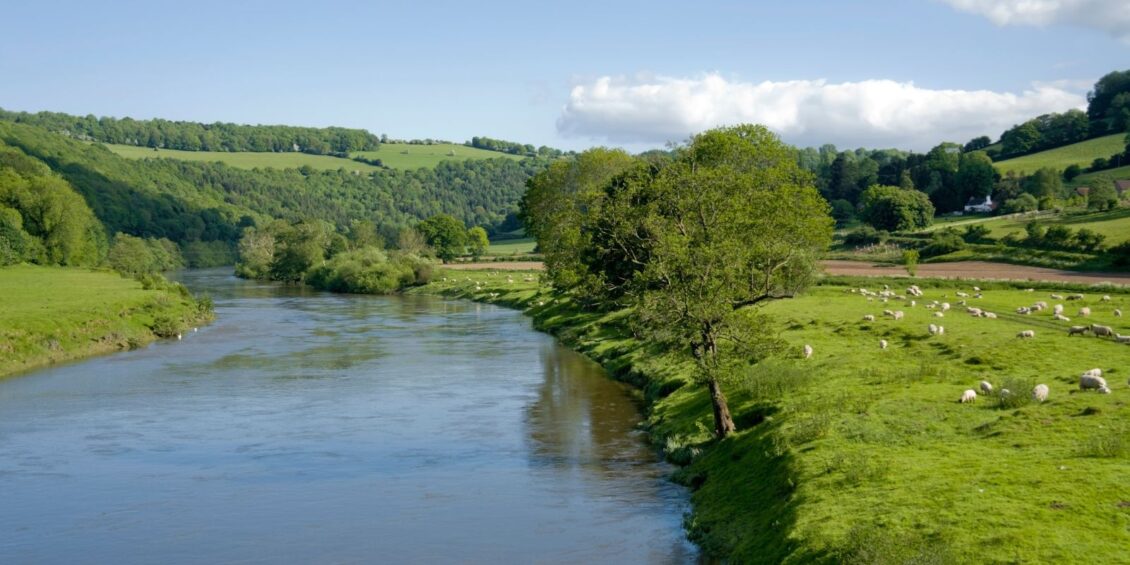A new change to Wales’s agriculture pollution regulations means that proposed licenses for muck-spreading will no longer be a requirement of farmers – instead they will need only to ‘self-report’ how much manure they put on fields. This voluntary approach will perpetuate the catastrophic consequences of farm run-off for Welsh rivers, say Wildlife Trusts Wales.
Agricultural pollution is known to be the main cause of the poor state of health of some of Wales’s most iconic rivers – it is a more significant factor in their degradation than sewage. Over 60% of rivers that are designated Special Areas of Conservation in Wales – including the rivers Wye and Usk – have failed phosphorus targets. A study of the Wye catchment found that “60-70% of the total phosphate load now comes from agriculture”. The effect on water quality and wildlife is damaging: salmon numbers have crashed in Wales by 42% and all river stocks have been assessed as ‘at risk’.
The regulation as originally drafted in 2021 had required farmers to apply for a license if they planned to spread an excess of 170 kg of nitrogen per hectare per annum. The change to the law “will now expect farmers to self-report any excess manure spreading”. This will allow the present high levels of pollution to continue.
Rachel Sharp, director of Wildlife Trusts Wales, says:
“Urgent action is needed to stop farm pollution reaching waterbodies if Wales is serious about protecting and restoring its precious rivers. The Welsh Government must strengthen, not weaken, laws that prevent spreading excess slurry on the land. Its new announcement seriously weakens the regulations and is a significant backward step in nature’s recovery across Wales. We need this retrograde decision to be reversed as soon as possible.”
“The damaging effect of the new decision to opt for a voluntary approach will be compounded by under-resourcing of the regulator, Natural Resources Wales (NRW), because sufficient funds needed to monitor farms have not been made available. NRW is meant to employ 20 new staff members but, to date, only 12 are in place for the whole of Wales, which means that it will not be possible to sufficiently monitor or control the amount of manure being spread on land. It’s an appalling state of affairs.”
The Water Resources (Control of Agricultural Pollution) (Wales) Regulations 2021 sought to tackle the causes of water pollution from spreading of slurry on farmland across Wales. The proposed regulation required farmers to apply for a license if they planned to spread an excess of 170 kg of nitrogen per hectare per annum, up to a maximum of 250 kg, and this license would be granted if the need to fertilise a crop could be proven.








Leave a Reply
View Comments